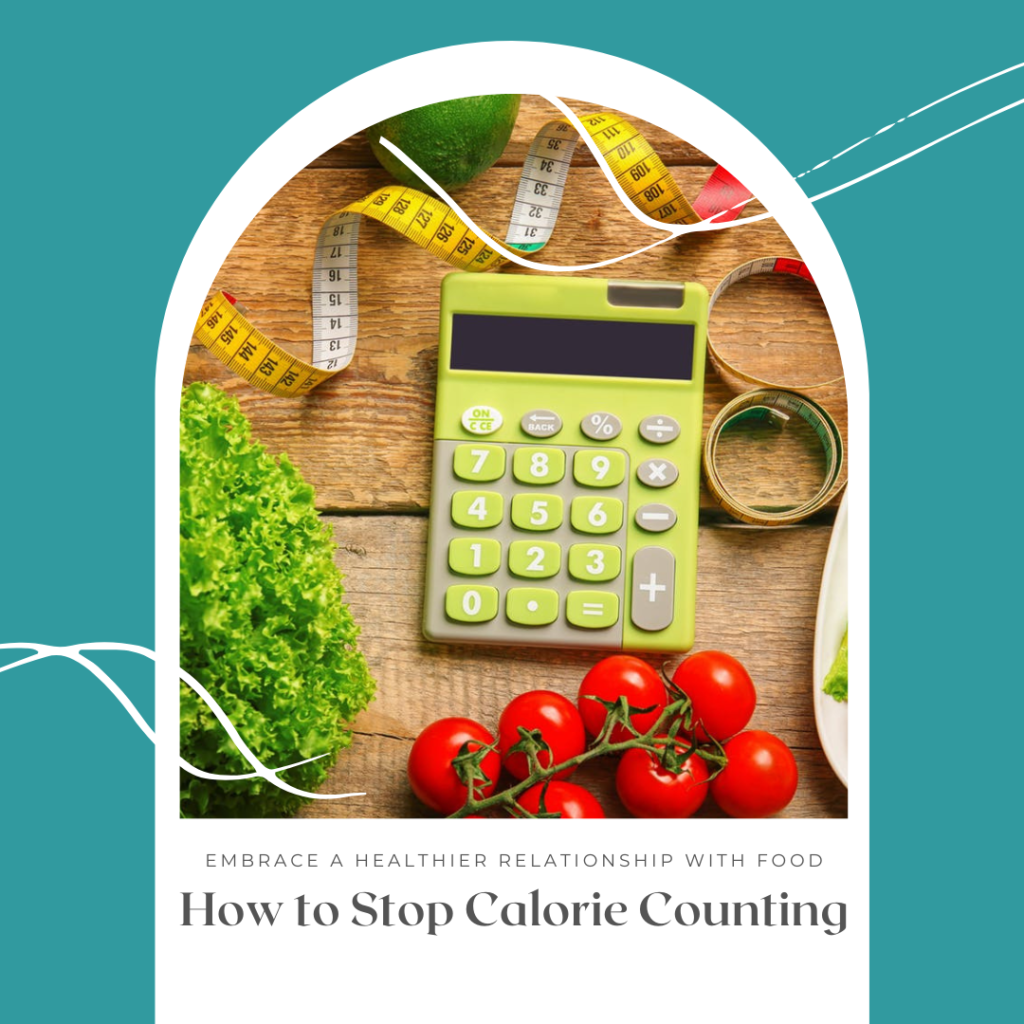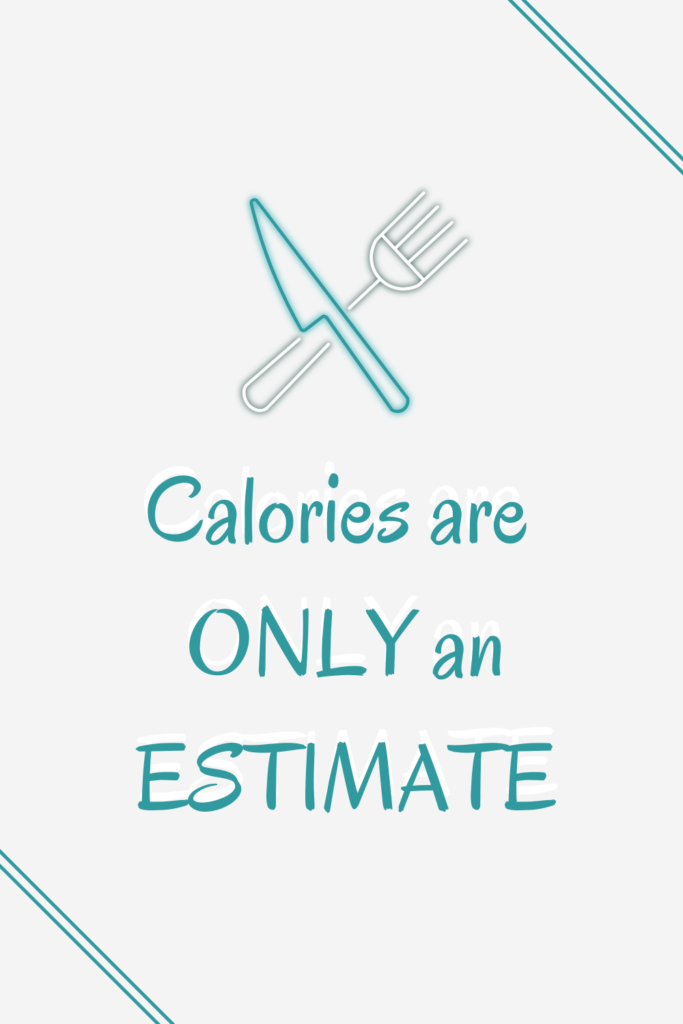
In a world where dieting trends often revolve around calorie counting, it’s easy to get caught up in the numbers game. However, focusing solely on calorie intake might not be the best approach for long-term health and well-being. If you’ve found yourself obsessing over every calorie consumed or burned, it might be time to rethink your strategy. Let’s explore why calorie counting might not be as beneficial as it seems and how you can stop calorie counting to move towards a more intuitive and balanced approach to eating.
Understanding Calories
Before diving into why calorie counting may not be ideal, it’s important to grasp what a calorie actually is. A calorie is a unit of measurement used to quantify the amount of energy provided by food. Basically coming from the macronutrients, including carbohydrates, proteins and fats. In theory, consuming more calories than you burn leads to weight gain, while consuming fewer calories results in weight loss. However, this simplistic equation doesn’t always reflect the complexities of human physiology.
Our bodies are not machines with predictable outcomes based on calorie counts. What you see on a label might not align with how your body processes and uses those calories. As a result, calorie counts are only estimates and can often mislead rather than inform.
Why Calorie Counting Isn’t the Best Approach
- It’s not practical
Keeping track of every calorie you consume can quickly become overwhelming. I just can’t imagine myself calculating each and everything I eat. Many people find that the constant calculation becomes a chore rather than a tool for improvement. Instead of focusing on the exact number of calories, consider planning your meals, shopping for fresh ingredients, and cooking at home. Prioritize the quality of your food over the quantity of calories. Whole, natural foods often provide more satisfaction and nutrition compared to processed options.
- Calories Are Just an Estimate

Calories are not a precise science. While they provide a rough idea of energy content, they don’t account for variations in how our bodies use that energy. Hormones, metabolism, and individual differences play significant roles in weight management. Instead of fixating on calorie numbers, tune into your body’s hunger and fullness cues. This approach allows for a more personalized and flexible way of managing your diet.
- Risk of Disordered Eating
It not necessarily extreme. However, obsessing over calories can lead to unhealthy relationships with food. Eating should be a source of enjoyment and nourishment, not stress and anxiety. Constantly worrying about whether you’ve exceeded your calorie limit can detract from the pleasure of eating. Learning to eat mindfully and listening to your body’s signals can help foster a healthier attitude towards food.
- Nutritional Value Matters More
When you focus solely on calories, you might overlook the nutritional quality of your food. For instance, an oil spray labeled as having “zero calories” can be misleading. It’s essential to look beyond calories and consider factors such as fats, sugars, and other ingredients. Nutrient-dense foods like avocados and nuts, though higher in calories, provide essential vitamins and minerals that contribute to overall health.
- Ignoring Your Body’s Needs
Since all you will care is calories, that will make you neglect nutrients. I know that we need calories to function but what about other nutrients??? The moment you shift to counting calories, you will eventually be discarding nutritious food. You will avoid avocados, or nuts, as example, since they are high in calories … rather than adding them to your diet as they are filling.
This is shouldn’t be your relationship with food…
- Potential for Weight Regain
“diet-induced weight loss results in long-term changes in appetite gut hormones, postulated to favor increased appetite and weight regain”. Diets that restrict calorie intake can lead to temporary weight loss but may also cause the body to adjust its metabolism in ways that promote weight regain. This phenomenon, known as weight cycling or yo-yo dieting, can make it harder to maintain weight loss over time. Instead of restrictive dieting, aim for sustainable lifestyle changes that promote long-term health.
I can’t forget to mention the cravings that you will have, if you are following a restricted diet. As you are reducing your calorie intake, your body understands it differently. I mean it will understand that you are in hunger state and there is a need to save what you have already. Meaning, reducing your metabolic rate, stimulate your appetite, and increase the calorie intake…leading to gaining weight.
Embracing a Healthier Relationship with Food
To move away from calorie counting, start by focusing on a balanced and mindful approach to eating:
- Plan Your Meals: Think about the types of foods you want to eat and how to prepare them. Focus on incorporating a variety of fruits, vegetables, lean proteins, and whole grains.
- Listen to Your Body: Pay attention to hunger and fullness signals. Eat when you’re hungry and stop when you’re satisfied, rather than adhering to a set number of calories.
- Prioritize Quality: Choose whole, unprocessed foods that offer nutritional benefits. Avoid overly processed items that might be low in calories but lacking in essential nutrients.
- Enjoy Food: Shift your perspective to see food as a source of pleasure and nourishment. Eating should be an enjoyable experience rather than a stress-inducing task.
In conclusion,
While calorie counting can provide some insights, it’s not the only or best way to achieve a healthy lifestyle. By focusing on the quality of your food, listening to your body’s needs, and cultivating a positive relationship with eating, you can achieve better health and well-being without the constraints of calorie counting.
References:
- Benton, D., & Young, H. A. (2017). Reducing calorie intake may not help you lose body weight. Perspectives on Psychological Science.
- https://nutritionstripped.com/counting-calories/
- https://www.healthline.com/nutrition/does-calorie-counting-work

Nice article.. one should focus more on a balanced nutrition and listen to the body..
Definitely! A balance and understanding needs is a top priority.
Lovely share, i have been struggling with my weight as i get older but reading your post, i realize counting calories is my main enemy stopping me from loossing weight.I have to start having a responsible relationship with food.
Pingback: 5 Steps to Healthy Lifestyle: +BONUS - Nutritious nutritiousinfo
Pingback: My meals: What do I eat?! - nutritiousinfo
Pingback: Fear of gaining weight?! - nutritiousinfo
Pingback: How to stop snacking? -
Very helpful and insightful! Thank you for posting!
so glad that you saw it that way,
Thanks <3
It’s so true that we can get hung up on calories. We have to take note of nutrition and make sure we are full so our diets will succeed.
yes, I agree..
thats why I added keeping track of what you’re eating or what you’re going to eat is good but it don’t be obsessed over calories.
What matters is QUALITY of your food choices.
Yes, I agree! I think we all need to listen to our own bodies.
Such good information! So many people hold themselves back and prevent weight loss. I have struggled with that and it took a long time to move past this. Once I stopped counting calories I lost weight and felt amazing